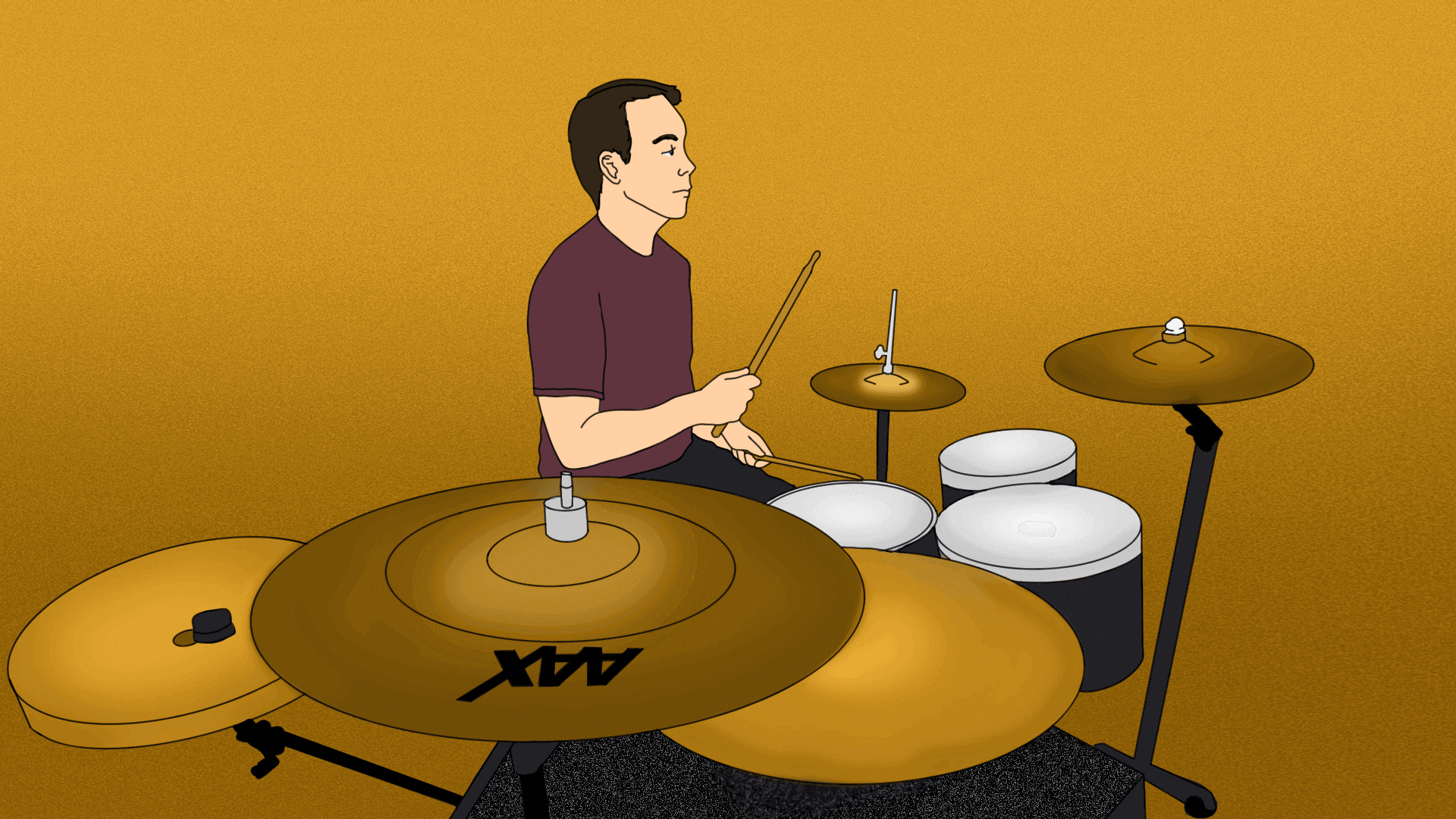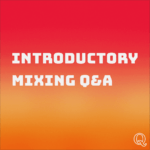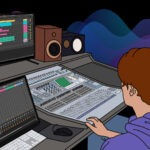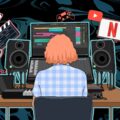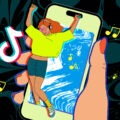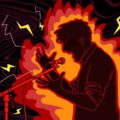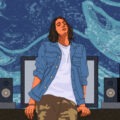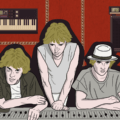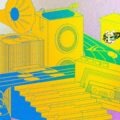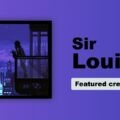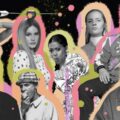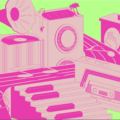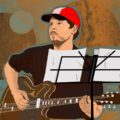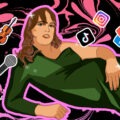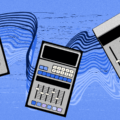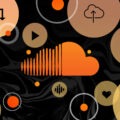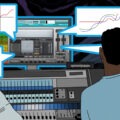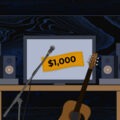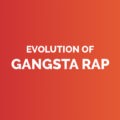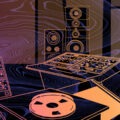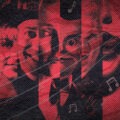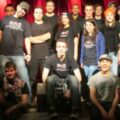Always marching to the beat of his own drum, Mike Ferguson’s sisterBlaze project is back with a brand-new prog-pop opus, Gemini, that fuses all his pop, punk and prog influences for a result that’s sophisticated, musically accomplished, and “progcessible”.
sisterBlaze 101: Cheat Sheet
Your role in sisterBlaze:
Composer, lyrics, guitars, drums, bass, synths, some keys, some vocals
What genre is sisterBlaze?
Progcessible!
Three favourite albums?
Colors – Between the Buried and Me
Somewhere in the Between – Streetlight Manifesto
Kezia – Protest the Hero
Favourite software or plugin?
The Slate mixing package has been great. I use the Replika and Repeater delays on everything, and they are very versatile.
What’s your sign?
Libra
Find sisterBlaze online
Mike Ferguson does not like to repeat himself. A drummer for over 20 years, Mike’s particular brand of prog-based musical eclecticism is all over his newest record, Gemini. With a wild array of influences that run the gamut from Blink-182, Tool, Alexisonfire, Slayer, Led Zep, and Opeth, the sisterBlaze mastermind has recently moved into the realm of composition and collaboration to better flesh out the wide range of sounds and ideas heard on Gemini. A talented songwriter and multi-instrumentalist in his own right (he sings, plays drums, guitars, synths, bass, and keyboards), Mike’s latest endeavour is an experiment in blending genres into a cohesive story, one that’s big on hooks, catchy choruses, and surprises around every turn. RAC recently caught up with the multi-faceted creator following the release of his inventive new album to discuss his musical evolution, influences, and prog-rock’s ability to relay a musical stream of consciousness.
Thanks for sitting down with us, Mike! Tell us a bit of where you come from and how the sisterBlaze project came about.
I grew up in a town an hour north of Toronto called Newmarket. My uncle is a sound engineer, and my cousin is also a musician, so music has always been in the family. When I was in the third grade, my teacher thought I might have ADHD because I march to the tune of my own drum. My parents disagreed with her and decided that learning a musical instrument might be a good way to channel my energy.
My cousin had a drumkit at the time, which I would try to play. My parents figured drums were a good place to start, and I took lessons for about two years. But it was only when I heard Travis Barker from Blink-182 that I began taking drums seriously. I spent years learning Blink songs and practicing constantly. I also joined a drumline at my school to round out my chops. I started my first band when I was 16 and began teaching myself guitar at the same time.
I was attending university in Montreal when I joined a band that became my life for the next two years. We toured the US, Quebec, and Ontario. My musical palette expanded tenfold since the band was a seven-piece, and everyone had very different influences. It was a blast!
I then joined an alt-rock band in 2014 and toured with them relentlessly in Canada for a few years. Eventually, the touring life took its toll, and I took a step back from live music.
Since 2016, I’ve been writing and recording my own work under the name sisterBlaze. The name comes from a nun my fiancée worked with when she worked at a respite centre in Toronto. She mentioned Sister Blaze, and I thought it was a sick band name, so I decided to use it.
Tell us about your earliest musical influences? How have those changed over the years?
When I was young, I listened to what my dad was into: the Rolling Stones, the Doors, and The Beatles. When I started playing drums, I was into Blink-182, Green Day, and all the pop-punk bands in the late ’90s and early 2000s, as well as third-wave ska. I started getting into heavier music like Alexisonfire, Tool, Children of Bodom, and eventually some real heavy stuff like Cannibal Corpse, Slayer, and Nile. Once I joined my seven-piece band in Montreal, I was introduced to the world of prog-rock and some of the classics like Zeppelin, Floyd, and Frank Zappa, as well as some jazz and reggae. Eventually, I found my niche in progressive metal with bands like Between the Buried and Me, Haken, Opeth, and Protest the Hero and got lost in that sphere for a while.
When I started to write lyrics and sing, I paid more attention to the pop music scene and found a new appreciation for that side of music. It doesn’t necessarily need to be super technical or overly complicated to be considered “good”. I started to understand the concept of serving the song, and I think it’s been a really important lesson in my writing journey. This project is a pretty good representation of my musical journey thus far.
When did you first realize that music composition and production was something that you wanted to pursue?
When I was learning guitar, I would sit down for hours trying to hack my way through Protest the Hero songs, and if a tab didn’t exist, I began to tab them out myself, improving my ear training exponentially. Eventually, I started to write my own riffs, and before I knew it, I had all these original tunes tabbed out, with all the parts, including drums, bass, and synths.
I discovered that I loved composing music, and I wanted to bring the songs to life. Writing and recording albums is not a cheap passion, so I knew I needed to learn how to bring my production in-house as much as possible, to create as many albums as I wanted without going bankrupt each time.
Tell us about your newfound collaborative process. What would you say the pros and cons are of working with other people on creative projects?
“Collaborative” is a bit of a misnomer. I retain complete artistic control, and the musicians who track with me are a bit of a revolving door. I play all the parts that I’m able to play, and I contract out the ones that I either can’t play or can’t play well enough. That isn’t to say that I’m a musical dictator. Sometimes I get parts back from session musicians that inspire new ideas, which opens up new doors for me to tweak parts of the songs or incorporate these new ideas.
For example, there is one song on my new album, a piano/acoustic guitar piece, that I wrote with my friend, who is a great piano player. He understands his theory much better than I do, so he can write really interesting and pretty chord progressions; we co-wrote the piece, and it turned out great!
The pros of being in complete control are that you’re in complete control—no more arguments with band members on how parts should shake out. The cons, of course, are that if you are writing and playing all the parts, it takes exponentially more time to track. Another con is that you sometimes get stuck in your musical box, and you need some fresh ideas so that your stuff doesn’t start sounding the same. I haven’t encountered that yet, but I definitely do miss having some new musical perspectives. If I hit a wall on my next record, I would be more receptive to opening up the floor a bit.
How does the music you listen to now influence your work?
My core influences are usually present in my tracks. On my new album, each song contains the core secret ingredient of what I was listening to at the time. For instance, when I wrote “Horizon”, I was listening to lots of Japanese rock, Vocaloid, and anime rock music, so that song became very synth-driven, upbeat and catchy. When I was writing “Spectres”, I was on a Tom Petty kick. Throughout the whole writing process, I was obsessed with The Dear Hunter, and I think the entire album reflects a lot of their sound.
What is it about prog-rock that attracts you to it more than any other genre? Your project has a bit of a theatrical flair to it as well; how are you meshing these two aspects?
It might be what I call musical ADD, but I find repetition tedious. I’m not knocking a lot of mainstream music, but I just find that static structure doesn’t make for good listening. The music industry would probably disagree, but that’s fine. Music is subjective, and if you love the music, then that’s great.
I love prog-rock or prog-anything because you never really know what’s coming around the corner. The genre embraces the idea of a musical stream of consciousness, themes, and storytelling. I think it’s the best genre to musically reflect the subject matter.
Most musicians in progressive bands are virtuosic. I, on the other hand, am not a virtuoso of any instrument– more of a jack of all trades but master of none. I can’t rely on crazy noodling to prop up my songs, so I focus on melodies, song flow and experience as opposed to outright musical wizardry. I used to do musical theatre when I was younger, so I borrowed many aspects from that to incorporate. It tells a great story, but it’s not necessarily complicated music.
I consider my music more like ‘prog-rock light’ or ‘accessible prog-rock’. I love catchy melodies, so it could lure lovers of pop and mainstream music, and it’s not overtly ‘musician’s music’ where it’s so complicated that it alienates that same demographic. Conversely, it’s interesting enough and diverse enough to keep the people who do love the complicated prog stuff captivated.
You’ve described Gemini as a “concept album inspired by the trials and tribulations of love, loss, and greed.” Can you talk about the inspiration behind the project and your creative process?
The albums that inspired this album were Dark Side of the Moon by Pink Floyd and Colors by Between the Buried and Me. Both albums are basically one song extended into eight tracks or so, but it’s tough to discern where one song starts and the other ends. The album flows as one piece. That was my intention.
I had the first half of the album in my head from the start; it was just a matter of fleshing it out. At that point, I played a lot more piano and got pretty good at writing on it. Suddenly, the whole writing process opened up with a fresh perspective, and I wrote the back half almost exclusively on the piano.
The lyrics were an issue. I had only written lyrics three times in my life, making me pretty new to the lyric writing game. I knew I wanted to tell a story, and I had an idea that it had to be set in space and there had to be pirates–since they play the best music.
As I started to hash out the songs, I had a vague concept of the story, which is loosely based on the part in the Iliad with the Sirens and the straits of Messina. I found it really hard trying to tell a linear storyline, so I decided that it was going to be from the point of view of three characters who were all looking for something: One is looking for love, one looking past loss, and another searching from a place of greed, all drawn to the haunting song of someone across the stars, only to be lured to their demise. Once I had this laid out, the lyrics for the second half of the album came naturally.
Your album is named after the dual air sign Gemini. What’s the connection between your music and astrology?
This was actually an accident. When I was writing the chorus to what eventually became the song “Gemini”, I needed a constellation that was three syllables. My choices were Capricorn, Scorpio, and Gemini. Gemini sounded the most like a woman’s name, so I chose it.
I realized later that some of the core themes of the story fit the idea of astrological Gemini very well, such as being two-faced or thinking something is one thing, but it’s actually something else. Also, all the characters were looking for their second half, so to speak. I call that serendipity.
What is the biggest impact that your education in music production has brought to your work? Is it purely technical prowess?
Before I studied music production, I had tried a few times to learn it on my own. I don’t excel outside of structured environments, so I didn’t get very far. After graduating, I was able to set up my own studio and get to the point where I was able to release material that sounded half decent. There is still a long way to go for me, and I had some outside help from some great engineers on my new album. That being said, if you had told me four years ago that I would release something that sounded like Gemini, I wouldn’t have believed you, but now that I have the knowledge to hack it on my own in music production, the sky’s the limit.
What’s next for you in 2021?
I’m going to take a bit of a break and hopefully watch the Habs win the cup. I already have some ideas for songs, so I’m excited to get back to writing. I might do a few singles, maybe write some stuff with other musicians now that the pandemic seems to be winding down, and maybe get into the realm of YouTube content before I dive into another full-length. I recently moved, and I just set my drums back up. It’s been almost nine months since I’ve played, so I gotta shake the rust off!
Illustration by Malaika Astorga
